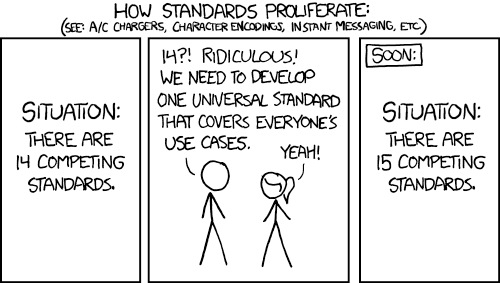

Now we’ve got to fucking participate in it?
Ah yes, killing all those innocent civilians hidden in incoming Iranian ballistic missiles…



Now we’ve got to fucking participate in it?
Ah yes, killing all those innocent civilians hidden in incoming Iranian ballistic missiles…

All true, yet it has nothing to do with what we are discussing, so why are you muddying the water with it?

my body, my choice
It’s a bit more complicated than that with transplants. Should people for example be able to sell their kidney to the highest bidder? That’s also “my body, my choice”. And should doctors be forced to participate in such a scheme?
A transplant system should consider fairness, equality and possible abuse. Obviously I think it should be possible to donate to a loved one, but we should also be careful not to create a system where the rich get priority, because they can pay more, and where poor people could be financially pressured to give up their bodily integrity by having to sell an organ.

We’re explicitly talking about a situation where the donor is suitable. So I don’t know what kind of information you’re trying to add here.

Even if her partner could donate his own liver, it should still go to a better recipient
That’s nonsense, because the partner would not donate his liver if it went to someone else.


Ctrl + r to search previous commands
That’s a readline thing by the way, so it doesn’t just work in bash but also works with other cli applications that are compiled with readline support, for example virsh, psql, fdisk, …


I’ve honestly never understood why someone at Google or Mozilla hasn’t decided to write a JavaScript Standard Library.



I’m with you, I also don’t like getting drunk and I don’t like how even a little bit of alcohol tires my body, but unfortunately I’ve found that flavor and alcohol content are directly related: a 5% beer never tastes as rich as a 9% tripel, and a 0.0% beer will never have as much flavor as even a simple 5% lager. I’ve tasted quite a few and they all taste “empty” to me. I think this is because alcohol is a solvent for a lot of chemical compounds in beer that give flavor.
So what I do instead is pick my moments, and never overindulge to the point where I feel intoxicated.


It prevents people from passing down wealth
Unless you’re very wealthy and put your real estate into a company, and pass down the company to your children without paying taxes on it.
This is what’s currently happening in Belgium: https://www.nieuwsblad.be/cnt/dmf20230324_96938388


How is that not enough? It’s in standard ISO8601 format and can unambiguously be reduced to a UTC timestamp, which is all that matters.


There are basically four positions you can take about this:
I am on (2), as are most historians, and you put yourself on (1).


if it’s good enough for the majority of historians
It isn’t. Historians would love to have independent evidence of the existence and crucifixion of Jesus, but there isn’t… so most historians refrain from taking a position one way or the other. The ones that do have to make do with what little objective information they have, and the best they can come up with is: well because of this embarassing thing, it’s more likely that he did exist and was crucified than that he didn’t, because why would they make that up?
That’s rather weak evidence, and far from “proof”.
Not sure why you’d need more
Well for one because the more prominent people who have studied this have a vested interest in wanting it to be true. For example, John P. Meier, who posited this criterion of embarassment that I outlined in my previous comment, isn’t really a historian but a catholic priest, professor of theology (not history) and a writer of books on the subject.


There was a guy named Jesus that was crucified by the romans and all that. There is proof of that
There isn’t actually. The proof is basically: it’s embarassing that their cult leader got painfully crucified, so the early Christians and writers of the new testament wouldn’t have made that shit up.
Personally I find it rather unconvincing.


We are talking about addresses, not counters. An inherently hierarchical one at that. If you don’t use the bits you are actually wasting them.
Bullshit.
I have a 64-bit computer, it can address up to 18.4 exabytes, but my computer only has 32GB, so I will never use the vast majority that address space. Am I “wasting” it?
All the 128 bits are used in IPv6. ;)
Yes they are all “used” but you don’t need them. We are not using 2^128 ip addresses in the world. In your own terminology: you are using 4 registers for a 2 register problem. That is much more wasteful in terms of hardware than using 40 bits to represent an ip address and wasting 24 bits.


you are wasting 24 bits of a 64-bit register
You’re not “wasting” them if you just don’t need the extra bits, Are you wasting a 32-bit integer if your program only ever counts up to 1000000?
Even so when you do start to need them, you can gradually make the other bits available in the form of more octets. Like you can just define it as a.b.c.d.e = 0.a.b.c.d.e = 0.0.a.b.c.d.e = 0.0.0.a.b.c.d.e
Recall that IPv6 came out just a year before the Nintendo 64
If you’re worried about wasting registers it makes even less sense to switch from a 32-bit addressing space to a 128-bit one in one go.
Anyway, your explanation is a perfect example of “second system effect” at work. You get all caught up in the mistakes of the first system, in casu the lack of addressing bits, and then you go all out to correct those mistakes for your second system, giving it all the bits humanity could ever need before the heat death of the universe, while ignoring the real world implications of your choices. And now you are surprised that nobody wants to use your 128-bit abomination.


IPv6 = second system effect. It’s way too complicated for what was needed and this complexity hinders its adoption. We don’t need 100 ip addresses for every atom on the earth’s surface and we never will.
They should have just added an octet to IPv4 and be done with it.


At 17:00 everyone’s got a beer on their desk and by 18:00 the doors are locked and the lights are out. One Thursday a month the table is used for beer pong after work and we play card games like Exploding Kittens.
I’d rather go home at 17:00 and do all those things with my real friends, or you know, spend some quality time with my partner.


You don’t even have to NAT the fuck out of your network. NAT is usually only needed in one place: where your internal network meets the outside world, and it provides a clean separation between the two as well, which I like.
For most internal networks there really are no advantages to moving to IPv6 other than bragging rights.
The more I think about it, the more I find IPv6 a huge overly complicated mistake. For the issue they wanted to solve, worldwide public IP shortage, they could have just added an octet to IPv4 to multiply the number of available addresses with 256 and called it a day. Not every square cm of the planet needs a public IP.


It’s when you have to set static routes and such.
For example I have a couple of locations tied together with a Wireguard site-to-site VPN, each with their own subnet. I had to write wg config files and set static routes with hardcoded subnets and IP addresses. Writing the wg config files and getting it working was already a bit daunting with IPv4, because I was also wrapping my head around wireguard concepts at the same time. It would have been so much worse to debug with IPv6 unreadable subnet names.
Network ACLs and firewall rules are another thing where you have to work with raw IPv6 addresses. For example: let’s say you have a Samba share or proxy server that you only want to be accessible from one specific subnet, you have to use IPv6 addresses. You can’t solve that with DNS names.
Anyway my point is: the idea that you can simply avoid IPv6’s complexity by using DNS names is just wrong.
Even the oldest millennials were just toddlers when the C64 was relevant, so this is not a typical millennial experience at all. It’s really a GenX thing… so once again we are forgotten.
I would say millennials’ computer experience starts in the late DOS/Win3.11 era at the very earliest, but more typically in the Windows 9x and early XP era. So even IRQ/DMA/config.sys/autoexec.bat fuckery is not that typical.